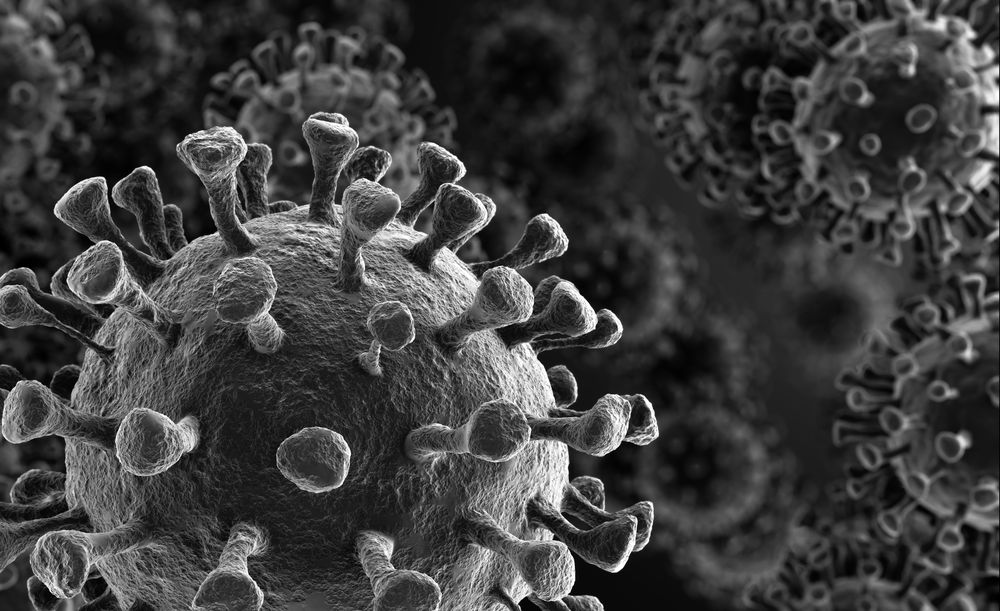
An analysis published in The Lancet of the largest cohort presented so far of cancer patients with coronavirus disease 2019 (COVID-19) has concluded that recent chemotherapy use is not a significant contributor to more severe disease or a predictor of death from COVID-19. Moreover, there were similar observations for immunotherapy, hormonal therapy, targeted therapy and radiotherapy.
"Our data are strongly indicative that COVID-19 mortality in patients with cancer is principally driven by advancing age and the presence of other non-cancer comorbidities," wrote Lennard Y. W. Lee, University of Birmingham, UK, and colleagues. They warned that "withholding effective cancer treatments from many cancer patients during the pandemic runs the very real risk of increasing cancer morbidity and mortality, perhaps much more so than COVID-19 itself."
Researchers analysed a cohort of 800 patients with a diagnosis of cancer and symptomatic COVID-19, all of whom presented to a network of 55 cancer centres in the UK from March 18, 2020, to April 26, 2020. Patients were deemed to have COVID-19 if an RT-PCR assay test from a throat or nose swab was positive for severe acute respiratory syndrome coronavirus 2 (SARS-CoV-2), while those who had a radiological or clinical diagnosis of COVID-19, without a positive RT-PCR test, were not included in the analysis.
Patients with active cancer were defined as those with metastatic disease, or on anticancer treatment in the curative, radical, adjuvant or neoadjuvant setting, or who were treated within the past 12 months with surgery, cytotoxic chemotherapy or radiotherapy. Specifically, participants were assessed as to whether they had received chemotherapy, immunotherapy, hormonal therapies or radiotherapy within 4 weeks of contraction of COVID-19. Researchers looked at whether patients had died or eventually achieved discharge, and observed the effect of anticancer treatment on outcomes.
Approximately half of the patients had metastatic cancer, of which malignant neoplasia of the digestive organs, haematological malignancies, breast and respiratory and thoracic organs were the most common primary tumour sites. The authors reported that comorbidities were common, including hypertension, diabetes, cardiovascular disease and chronic obstructive pulmonary disease, while 169 (21%) patients were listed as having no comorbidities apart from their cancer diagnosis.
A mild COVID-19 severity category was recorded in 412 (52%) patients, with 96 (12%) not requiring hospital admission. Meanwhile, 315 (39%) patients required oxygen, and 53 (7%) patients received intensive therapy unit (ITU) level care.
Among the 226 (28%) patients in the cohort who died, medical reports stated that the death was mainly due to COVID-19 in most cases (211 [93%]). Compared with the rest of the cancer cohort, patients who died were significantly older (median 73 years vs 66 years; p<0.001), more were male (146 [33%] of 449) than female (80 [23%] of 349), and displayed higher rates of comorbidities compared with those who did not, including cardiovascular disease (21% vs 11%; p<0.001) and hypertension (41% vs 27%; p<0.001). Patients who died were also more likely to present with symptoms of shortness of breath (57% vs 32%; p<0.001).
Across the cohort, 172 (22%) patients were reported as having their anticancer treatments interrupted because of the COVID-19 pandemic, although the authors noted that the "exact nature of this interruption was not captured in this study."
Results from a univariate analysis showed a death rate of 27% among patients who had received chemotherapy within 4 weeks of testing positive for COVID-19, compared with 29% for those without recent chemotherapy. Similarly, a multivariate analysis corrected for age, gender and comorbidities found that deaths in cancer patients with COVID-19 who had received recent chemotherapy were still no more likely than in those who had not (n=281; OR 1.18 [95% CI 0.81–1.72; p=0.380]). There were also no significant differences in mortality in patients receiving first-line palliative chemotherapy compared with those receiving later lines of palliative treatment, after adjustments for age, gender, and comorbidities.
Finally, researchers analysed the use of other forms of anticancer therapies within 4 weeks of testing positive for SARS-CoV-2 infection and presenting with COVID-19. Compared with patients who were not on these therapies, patients on immunotherapy (n=44; OR 0.59 [95% CI 0.27–1.27]; p=0.177), hormonal therapy (n=64; OR 0.90, [0.49–1.68]; p=0.744), radiotherapy (n=76; OR 0.65 [0.36–1.18]; p=0.159) and targeted therapies (n=72; OR 0.83 [0.45–1.54]; p=0.559) were also not at any additional risk of death, after adjusting for age, gender and comorbidities.
The authors highlighted two recent studies reporting COVID-19 outcomes in patients with cancer, both of them small retrospective analyses from China in a few cancer centres that "resulted in the community being fearful of giving effective anticancer treatments. These studies concluded that cancer patients are not only more susceptible to contracting the virus compared with the general population, but also at risk of developing more severe sequelae."
However, the authors said the current study suggests "mortality from COVID-19 in cancer patients appears to be principally driven by age, gender and comorbidities… At a population level, our data do not suggest that chemotherapy or anticancer treatments will necessarily increase the risk of mortality from COVID-19, and gives confidence to oncologists and other clinicians that delivery of effective anticancer regimens should continue during this difficult time."
They noted that limitations of the study include the analysis being partly dependent on the UK's national COVID-19 testing policy, "which is less permissive than that of other nations." Researchers also pointed to a possible selection bias, in that those patients who were not on chemotherapy might have stopped chemotherapy because of a poor performance status, reducing the ability to assess the real risk of anticancer treatments in a population with a better performance status.
Reference: https://www.thelancet.com/journals/lancet/article/PIIS0140-6736(20)31173-9/fulltext
SOURCE: The Lancet
Ihr Celsius42-Team